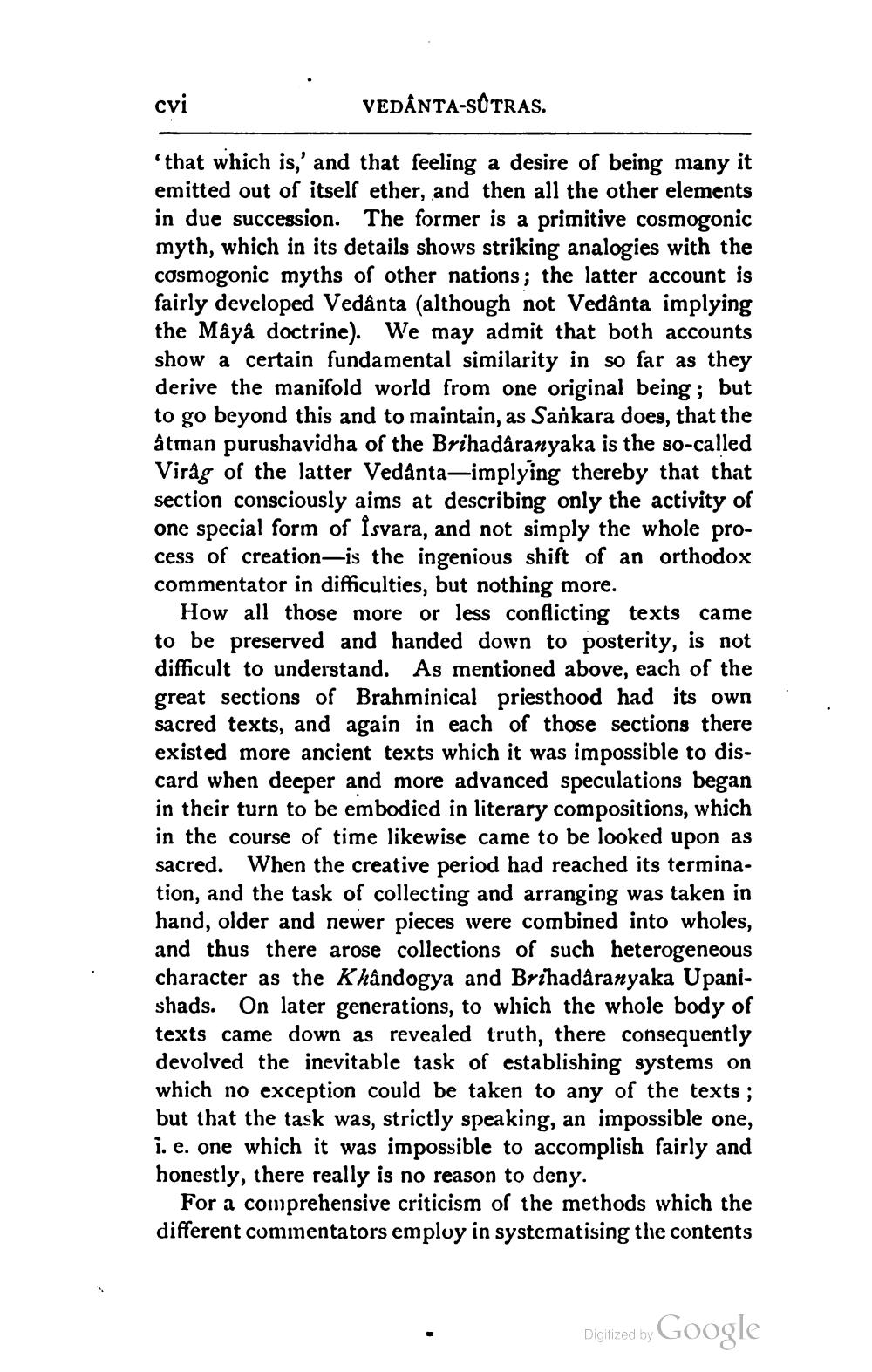________________
cvi
VEDÂNTA-SOTRAS.
that which is,' and that feeling a desire of being many it emitted out of itself ether, and then all the other elements in due succession. The former is a primitive cosmogonic myth, which in its details shows striking analogies with the cosmogonic myths of other nations; the latter account is fairly developed Vedanta (although not Vedanta implying the Mâyå doctrine). We may admit that both accounts show a certain fundamental similarity in so far as they derive the manifold world from one original being ; but to go beyond this and to maintain, as Sankara does, that the atman purushavidha of the Brihadaranyaka is the so-called Virág of the latter Vedanta-implying thereby that that section consciously aims at describing only the activity of one special form of Isvara, and not simply the whole process of creation—is the ingenious shift of an orthodox commentator in difficulties, but nothing more.
How all those more or less conflicting texts came to be preserved and handed down to posterity, is not difficult to understand. As mentioned above, each of the great sections of Brahminical priesthood had its own sacred texts, and again in each of those sections there existed more ancient texts which it was impossible to discard when deeper and more advanced speculations began in their turn to be embodied in literary compositions, which in the course of time likewise came to be looked upon as sacred. When the creative period had reached its termination, and the task of collecting and arranging was taken in hand, older and newer pieces were combined into wholes, and thus there arose collections of such heterogeneous character as the Khândogya and Brihadaranyaka Upanishads. On later generations, to which the whole body of texts came down as revealed truth, there consequently devolved the inevitable task of establishing systems on which no exception could be taken to any of the texts ; but that the task was, strictly speaking, an impossible one, i. e. one which it was impossible to accomplish fairly and honestly, there really is no reason to deny.
For a comprehensive criticism of the methods which the different commentators employ in systematising the contents
Digitized by Google




